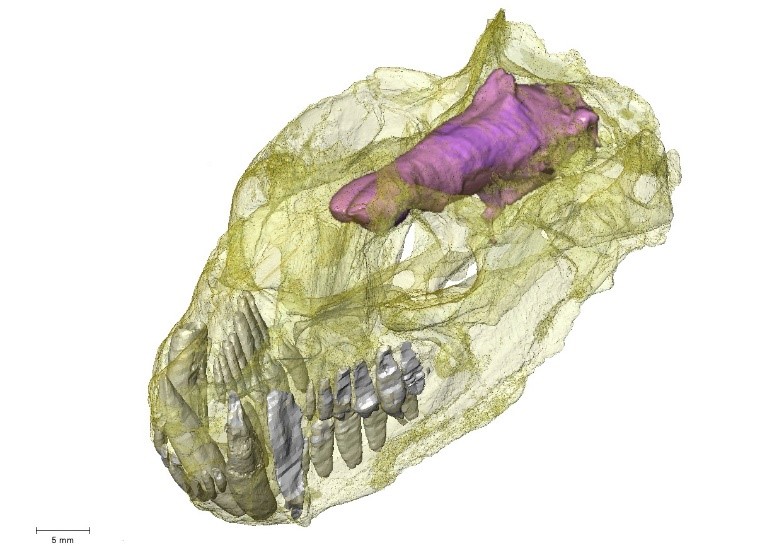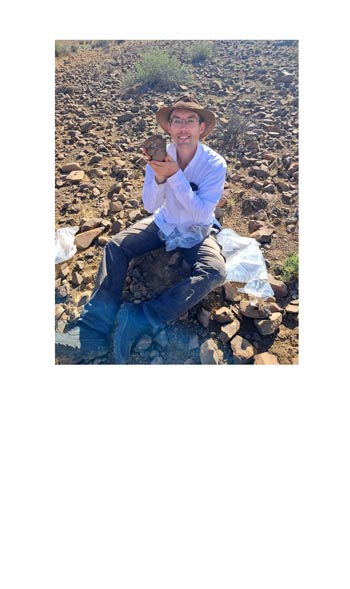April 29 2024 – 11h: international seminar Palevoprim n° 52
Speaker
Julien Benoit
Associate Professor in Palaeontology, University of the Witwatersrand
Topic
Paleoneurological Diversity of Therapsids (Synapsida) from the Permian and Triassic
All modern mammals are descended from non-mammalian therapsids, a paraphyletic assemblage of early amniotes that dominated terrestrial ecosystems during the Permian and Triassic. Their biology is mostly studied for its relevance to better understanding the plesiomorphic mammalian body plan, including their nervous system. Therapsids have long been assumed to have had a rather “reptilian” looking brain, simple behaviour, poorly tuned sensory organs and motor coordination, and a “cold-blooded” metabolism.

Fieldwork in the South African Karoo, and the study of museum specimens using CT and synchrotron scanning is updating this picture and shedding some fresh light on the diversity of the therapsid neurosensory apparatus. Recent advances support that beyond their reputation for being the ancestors of mammals, therapsids had diverse neurosensory and behavioural adaptations that made them the most successful taxon on land long before the first dinosaur was even born.
Place
Room 410, 3rd floor, North wing, Build. B35, university of Poitiers.
Find out more





